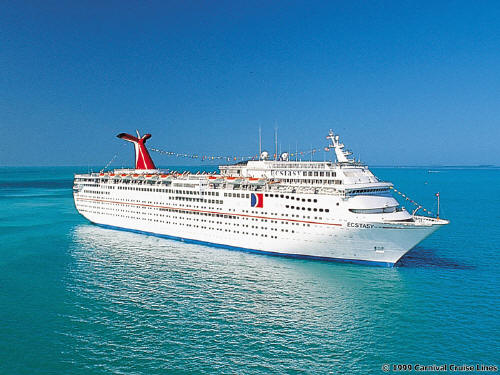Carnival Corp. is raising billions of dollars to weather the pandemic, and the near-total shutdown of its business—but it’s not giving up Panama.
The world’s largest cruise company and its main competitors have long maintained headquarters in Miami but legal incorporation elsewhere, largely for tax reasons. That foreign allegiance backfired on the industry last month, when cruise companies were left out of the $2 trillion U.S. stimulus package.
Now Panama-based Carnival, like Liberia’s Royal Caribbean Cruises Ltd. and Bermuda’s Norwegian Cruise Line Holdings, is trying to survive though non-government-guaranteed means. Yet Carnival is “not at all” reconsidering its Panama incorporation, or thinking about moving its legal home to the United States, CEO Arnold Donald told Fortune Thursday, during a conference call with reporters.
“There’s no particular reason to do that,” Donald said. “We operate under a lot of international maritime laws and jurisdictions of all different countries that we visit, and the vast majority of the revenue we generate is in fact earned outside the U.S.”
That vast majority of that revenue is also protected from U.S. taxes. By incorporating in countries like Panama, cruise operators can take advantage of a section of the tax code that exempts “gross income derived by a foreign corporation from the international operation of ships.” As a result, Carnival says in regulatory filings, “substantially all” of its $3 billion in profit last year was “exempt from U.S. federal income and branch profit taxes.”
But about half of the industry’s passengers come from North America, where the U.S. government has warned Americans not to travel by cruise ship and extended a “no sail” order for all cruise ships through at least mid-July.
Now Carnival, owner of the Princess ships that became early and spectacular coronavirus disasters, says it’s bracing for business to be shut down through the rest of 2020. The company this month raised about $6 billion in debt and equity, after fully tapping its existing $3 billion revolving credit facility, and is reducing its capital spending and operating expenses.
These measures “should provide sufficient liquidity to fund our operations through the end of the year and beyond, potentially, without any significant revenue coming in,” Donald said Thursday. “We hope that will prove to be unnecessary, but we need to be prepared for the worst.”
